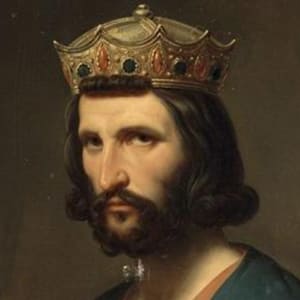
David Trimble
David Trimble served as first minister of the Northern Ireland Assembly, leader of the Ulster Unionist Party and a member of the British Parliament.
Synopsis
David Trimble is a politician who served as first minister of the Northern Ireland Assembly (1998–2002), as leader of the Ulster Unionist Party (UUP; 1995–2005), and as a member of the British Parliament (1990–2005). In 1998, Trimble and John Hume, leader of the Social Democratic and Labour Party, were awarded the Nobel Prize for Peace for their role in what came to be known as the Good Friday Agreement.
From Bangor to Belfast
William David Trimble was born into a Protestant family in the town of Bangor, Northern Ireland on October 15, 1944, which by that time was already sharply divided along religious and political lines. Trimble attended the local schools as a youth, then went on to study law at Queen’s University of Belfast, from which he graduated with honors in 1968. After passing the bar the following year, Trimble returned to his alma mater to teach, eventually becoming head of its Commercial and Property Law department.
In 1975, while a faculty member at the university, Trimble first entered politics, joining the Vanguard Unionist Progressive Party (VUPP), a conservative Protestant organization with ties to paramilitary groups that opposed the involvement of the Irish government in Northern Ireland’s affairs. As a member of the VUPP, Trimble was elected to a seat on the short-lived Northern Ireland Constitutional Convention power-sharing government, which fell apart shortly after its creation due to ongoing sectarian strife and political infighting in the region.
The Unionist
When disagreements within the VUPP led to a split within the party, Trimble joined the more mainstream Ulster Unionist Party and quickly became one of its most influential members. Over the next decade, he would hold various posts within the UUP and other unionist organizations, well establishing himself as a protector of the interests of Northern Ireland’s Protestant majority.
In 1990, Trimble further bolstered his political influence when he was elected to the British Parliament, defeating 10 other candidates, including a rival from the nationalistic Social and Democratic Labour Party, headed by John Hume. Despite these successes, however, Trimble was considered an underdog in the 1995 elections for head of the Ulster Unionist Party and surprised many when he was chosen over several other opponents.
Toward Peace
With his deep unionist credentials, and political associations with the likes of hardliners such as Ian Paisley, it was generally anticipated that Trimble would continue to operate strictly along party lines. So it caused some shock on both sides of the divide when, soon after his election, he became the first UUP member in decades to meet with the prime minster of the Republic of Ireland. That shock turned to outrage for some when in 1997 he agreed to take part in the “all-party” peace talks that included John Hume (one of the primary architects of the talks) and the SDLP as well as Sinn Féin, the political arm of the Irish Republican Army.
Ignoring criticism from hardliners who attempted brand him a traitor, Trimble’s involvement in the talks helped lead to the so-called Good Friday agreement of April 1998, which established laid the foundation for a power-sharing government in Northern Ireland. The agreement was overwhelmingly ratified in an island-wide vote the following month and Trimble was elected the new government’s first minister. For his part in bringing the measure to fruition, Trimble (along with John Hume) was awarded the Nobel Prize for Peace later that year.
A Life in Politics
As first minister of the new government, Trimble continued to demonstrate his willingness to work with Sinn Féin and the other political parties toward a lasting peace. However, when questions arose about whether the IRA was following through with its promise to disarm, Trimble resigned in protest and the Northern Ireland Assembly was suspended by Britain in 2002.
Despite the collapse of the power-sharing government, in 2004 Trimble was reelected party leader of the UUP. However, he lost his seat in the House of Commons to the candidate from the right-wing Democratic Unionist Party the following year. Trimble resigned as UUP leader shortly thereafter.
But Trimble’s political life was still far from over. In 2006, he received a lifetime appointment to the House of Lords, the upper house of British Parliament. In 2007, the Northern Ireland Assembly was reinstated, but Trimble chose not to participate in new elections, opting instead to join England’s Conservative Party in the interest of deepening his involvement in British politics.



